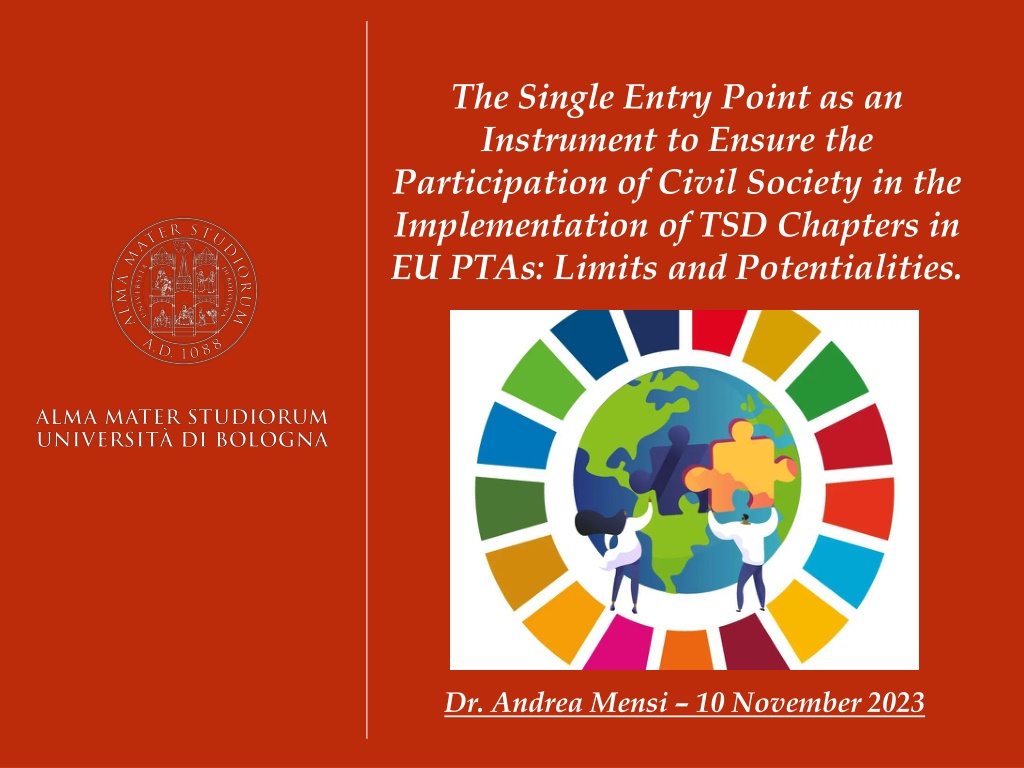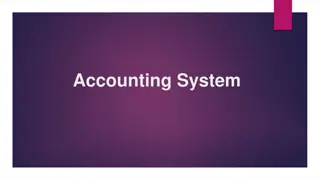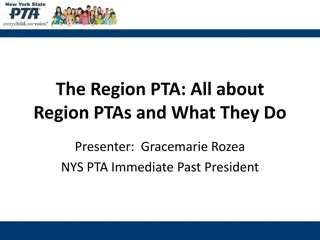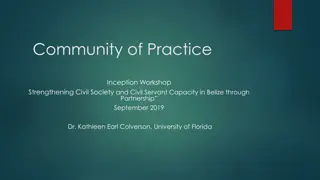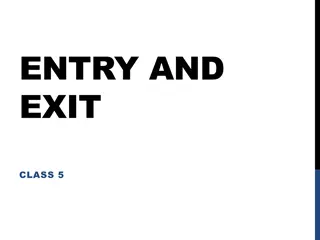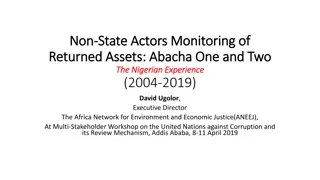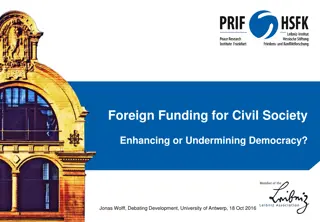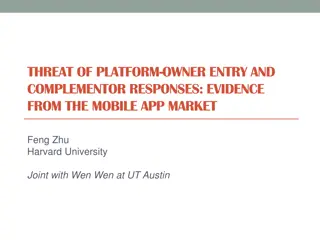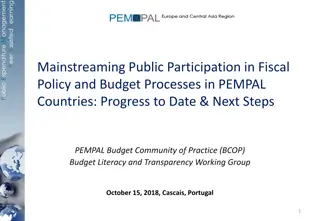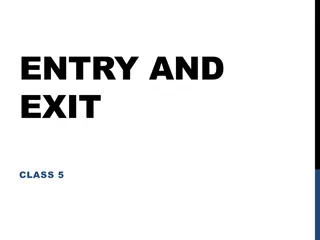Enhancing Civil Society Participation in TSD Chapters of EU PTAs through the Single Entry Point
The Single Entry Point (SEP) serves as a key mechanism for EU-based stakeholders to address violations in Trade and Sustainable Development (TSD) commitments. Through a centralized platform, stakeholders, including EU member states, NGOs, and citizen groups, can submit complaints regarding breaches of TSD rules. The SEP streamlines the process by providing operational guidelines, defining complainants, and outlining procedures for addressing complaints efficiently and within a set timeframe. If violations are confirmed, the EU Commission can implement various measures to rectify the situation, emphasizing flexibility and prioritization of resources for more impactful resolutions.
Download Presentation

Please find below an Image/Link to download the presentation.
The content on the website is provided AS IS for your information and personal use only. It may not be sold, licensed, or shared on other websites without obtaining consent from the author. Download presentation by click this link. If you encounter any issues during the download, it is possible that the publisher has removed the file from their server.
E N D
Presentation Transcript
The Single Entry Point as an Instrument to Ensure the Participation of Civil Society in the Implementation of TSD Chapters in EU PTAs: Limits and Potentialities. Dr. Andrea Mensi 10 November 2023
The Single Entry Point (SEP) 2020 creation of the Single Entry Point (SEP) as centralized contact point for EU-based stakeholders that aim to lodge a complaint on: violations of TSD commitments by EU trading partners violations of generalized Scheme of Preferences (GSP) rules potential trade barriers in EU trading partners 2022 New operational guidelines to implement the SEP
Complainants Subjects that may submit complaints, also jointly: a) EU member States; b) entities having their registered office, central administration or principal place of business within the Union; c) industry associations of EU companies; d) associations of EU employers; e) trade unions or trade union associations formed in accordance with the laws of any EU member State; f) EU DAGs formed according with EU trade agreements; g) NGOs established in accordance with the laws of any EU member State; h) citizens or permanent residents of an EU member State. EU-based stakeholders may represent the interests of similar entities based in duty to disclose the identity of such other subjects the EU trading partner
Procedure Optional pre-notification phase suggested for medium and smaller stakeholders Complainants should include information TSD chapters provision violated Legislation or practice violating the TSD commitments Existing domestic or international monitoring procedures Gravity of the violation it shall be systematic If the complaint is considered complete, the SEP will identify any potential violation and the most appropriate means of address preliminary assessment and identification of the next steps within 120 working days from receipt of the complaint finalization of the
Means of address If a violation if found, the EU Commission may take different measures to address the violation Diplomatic means international monitoring formal bilateral dispute settlement unilateral measures Flexibility to focus and prioritize resources on the most relevant cases which have more chance of being positively resolved lack of predictability
Underuse of the SEP one on TSD chapters To date more than 40 complainants on trade barriers but only 2022 Dutch NGO CNV Internationaal on behalf of certain trade unions organizations from Colombia and Peru Violation by Colombia and Peru of certain provisions of the PTA with Colombia, Peru and Ecuador on labour rights, freedom of association and right to equality and binding ILO fundamental labour standards repetition measures with clear targets and timelines practice for future submissions? Petition includes a roadmap based on restitution and non- good
Potentialities A recent instrument which still requires to be fully implemented but with potentialities possibility for civil society and stakeholders to lodge complaints on violations of TSD chapters on an equal footing with trade barriers pre-notification contacts may promote the participation of smaller stakeholders timeline in the pre-assessment phase possibility for DAGs to submit complaints chance for EU-based stakeholders to represent interests of non-EU entities
Criticalities Future implementation of the SEP should be based on transparency and predictability to solve several criticalities necessity of a time-line also for the assessment phase necessity to allow stakeholders to re-submit non-accepted complaints accompained by substantial motivation necessity to inform stakeholders on measures taken and why, even in case a complaint is accepted necessity to publish public reports Good practice suggested by third countries instruments e.g. Canadian public communication process
Concluding remarks Single Entry Point requires still a progressive refinement based on transparency and predictability The implementation of the SEP and the improvement and TSD chapters are conceptually inseparable Great progresses achieved by TSD chapters but need to increase ambition to make TSD commitments clear, concrete and actionable also by civil society Importance to consider societal context of the EU trading partners eg EU-New Zealand PTA with Maori people
Many thanks! Andrea Mensi Andrea.mensi2@unibo.it
